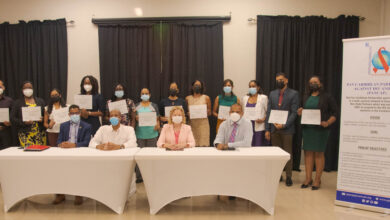A team of Belgian researchers reported a new strain of HIV in Cuban patients that can result in AIDS within three years, if no cure is administered. Researchers worry that the mutated HIV strain could evolve so quick that patients will get antiretroviral therapy only after it is already too late.
According to the researchers, the newly found strain become “epidemic” among patients recently diagnosed with HIV on the Caribbean island. Those patients reported that they might have been infected after they had had unsafe sex with multiple partners.
The researchers from the Catholic University of Leuven, in Belgium, went to Cuba to study the HIV strain, after their peers in Cuba reported more and more patients being infected with a type of HIV virus that rapidly led to AIDS.
Usually, a HIV strain needs six to ten years to progress to AIDS. The new mutated strain led to the deadly disease in less than three years. Scientists are currently concerned that the new types of HIV strains, which are harder to diagnose, may develop drug-resistance and may hinder the process of designing a vaccine.
The researchers from Belgium based their findings on a study conducted on 95 Cuban patients. Seventy-three were recently diagnosed with HIV infection, while 22 patients had developed AIDS after carrying the virus in their bodies for more than three years. Scientists compared the two groups’ HIV strains.
They found that, although none of the patients received therapy, only the group infected with the mutated strain, which is a recombinant of the HIV virus, developed AIDS within three years.
Researchers warned that the more unprotected sex partners somebody had, the higher the risk of getting infected with multiple strains that can recombine within that person’s body and result in a hard to cure strain.
The findings were published last week in the journal EBioMedicine.
The study seemed worrisome for some South Florida HIV researchers, since Cuba is in South Florida’s backyard.
“We knew that sooner or later we were going to face this locally. Cuba is local for Miami. We may see similar situations here in Miami in the future, and that’s something I’m concerned about,”
explained Hector Bolivar, a physician and AIDS researcher at the University of Miami Miller School of Medicine.
But other SOFL researchers doubt that a study involving only 95 patients could bring some relevant insights for AIDS research. And they also questioned the ethics of a study that would allow its HIV-infected participants to develop AIDS without treatment.





